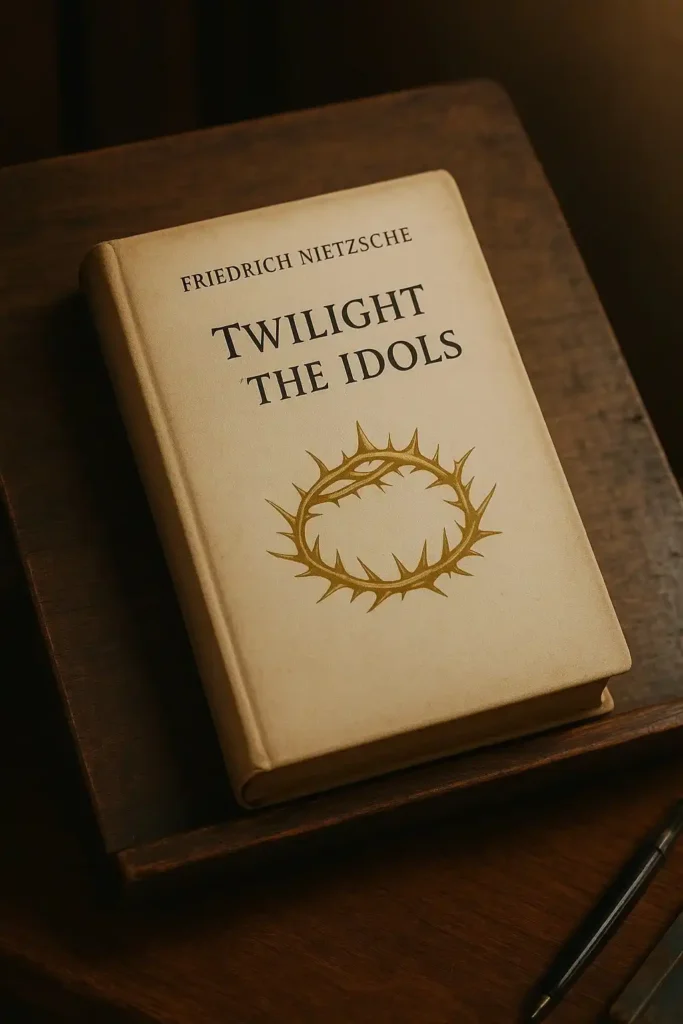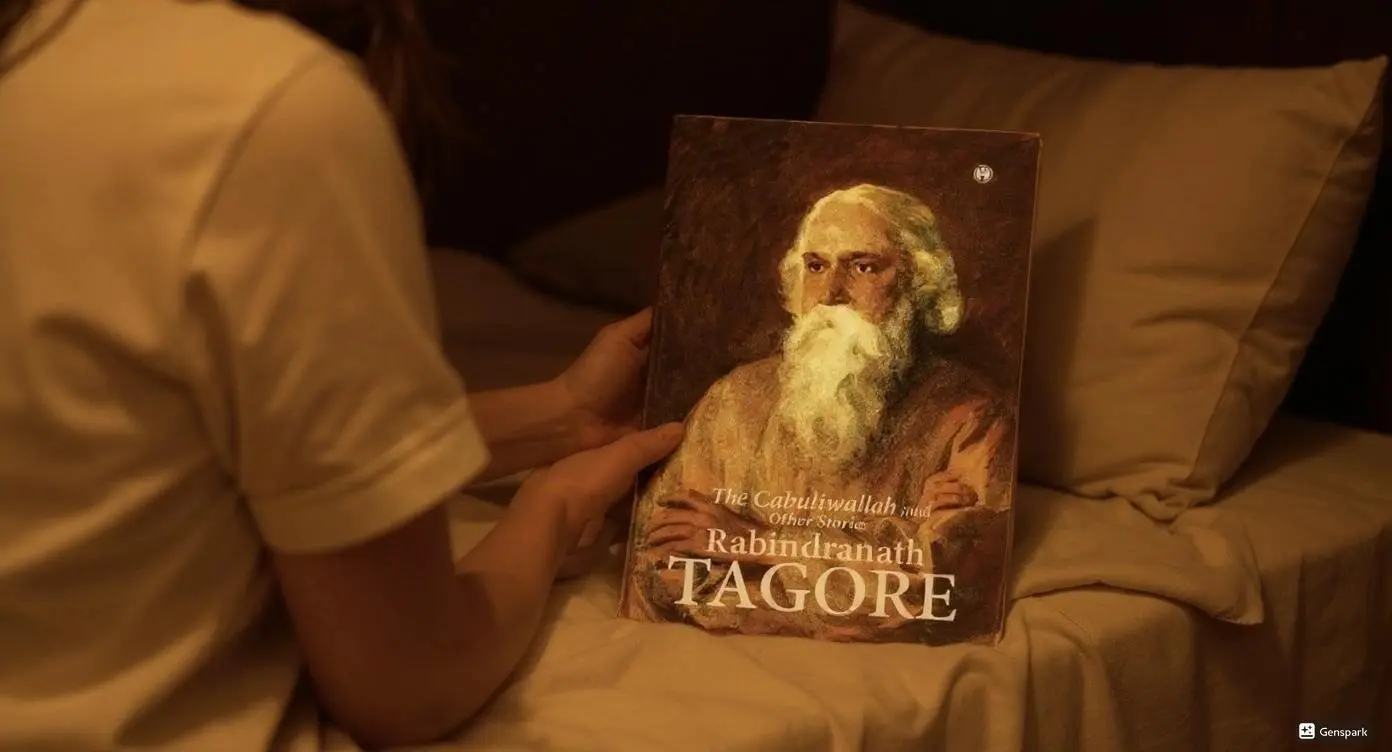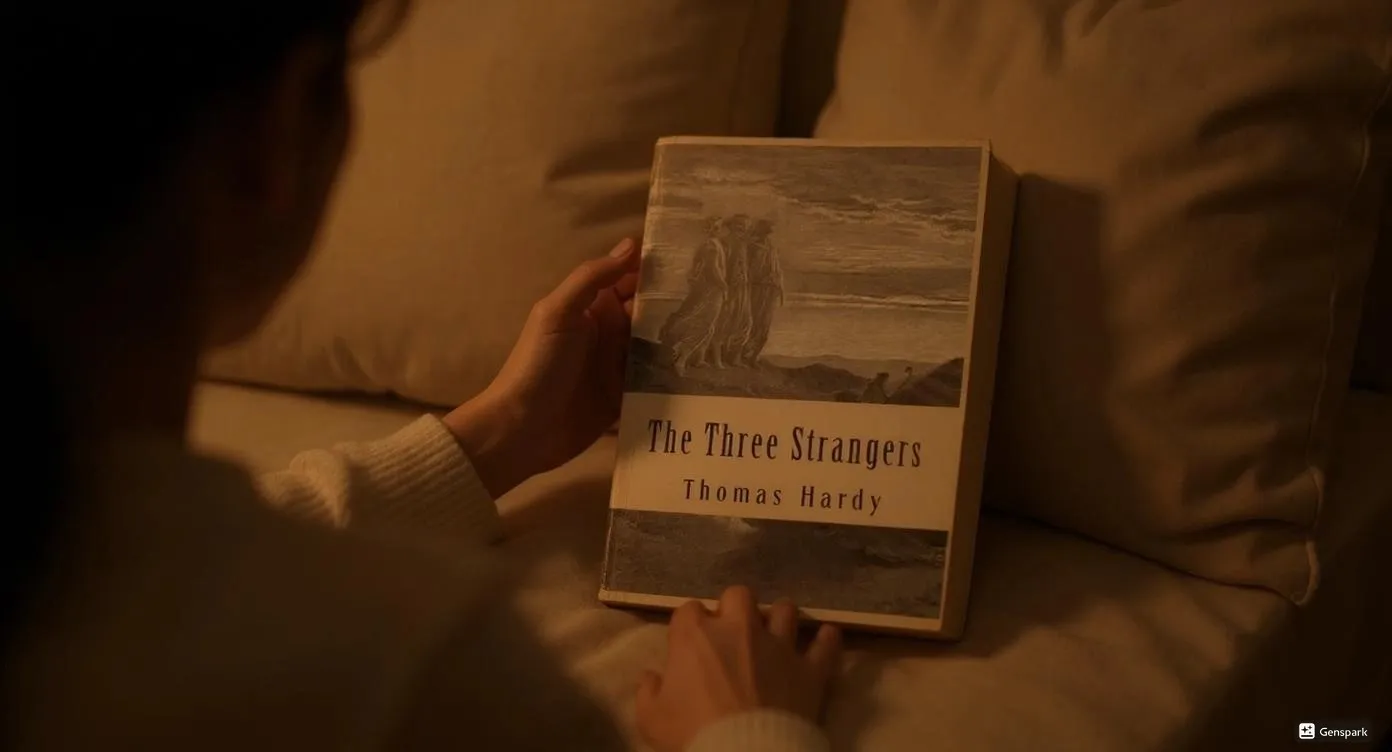Twilight of the Idols by Friedrich Nietzsche stands as one of philosophy’s most provocative critiques of Western thought. The German philosopher targets Christianity, morality, and what he sees as humanity’s self-imposed limitations.
I picked up this book after wrestling with questions about truth and societal values that seemed increasingly hollow. What struck me wasn’t just Nietzsche’s famous “God is dead” proclamation, but his surgical dissection of how we create false idols from abstract concepts.
His aphoristic style cuts through philosophical jargon like a blade, making complex ideas surprisingly accessible. The book’s subtitle, “How to Philosophize with a Hammer,” perfectly captures its destructive yet liberating approach.
Nietzsche challenges readers to examine their deepest assumptions about good, evil, and human nature. His critique of Socratic rationalism and Christian morality feels startlingly relevant in our current cultural moment. While his prose can feel overwhelming at times, the clarity of his arguments about human potential versus self-imposed constraints makes this needed reading. The work’s influence on existentialism, psychology, and modern thought cannot be overstated.
For anyone questioning conventional wisdom or seeking intellectual courage, this book offers both destruction and possibility. Nietzsche doesn’t just tear down; he points toward new ways of thinking about human flourishing that continue to resonate today.
Key Takeaways
- Twilight of the Idols serves as Nietzsche’s most accessible yet devastating critique of Western civilization, condensing complex philosophical ideas into 80 pages of sharp aphorisms that challenge Christianity, traditional morality, and Socratic rationalism.
- Nietzsche’s “philosophizing with a hammer” methodology tests cherished beliefs by striking them to reveal whether they ring true or sound hollow, targeting what he calls “idols” – unexamined societal beliefs that prevent authentic human flourishing.
- The book advocates for a complete “revaluation of all values,” rejecting the artificial separation between an “ideal world” and reality while promoting life-affirming philosophies that embrace human instincts rather than suppressing them through moral constraints.
- Nietzsche’s concept of “will to power” represents the fundamental human drive toward growth, creativity, and self-overcoming, offering an alternative to traditional moral systems that he views as anti-natural and life-denying.
- The work remains remarkably relevant to contemporary discussions about cultural decline, institutional authority, and moral questioning, with its insights about authenticity and self-acceptance directly anticipating modern psychological and philosophical discourse.
- While intellectually stimulating and prophetic, the book’s fragmented aphoristic style and lack of constructive alternatives can frustrate readers, requiring significant philosophical background and leaving many seeking more practical guidance for replacing demolished value systems.
Publishing Information: Written 1888; published 1889 by C. G. Naumann (Leipzig, Germany)
Genre: Philosophy, Polemic
Series Information: Written during Nietzsche’s late period; closely linked to The Antichrist and Ecce Homo
Page Count: Approximately 140 pages (varies by edition)
Main Features:
- Composed as a concise overview and critique of Nietzsche’s philosophical positions
- Contains sections such as “Maxims and Arrows,” “The Problem of Socrates,” “Morality as Anti-Nature,” and “What the Germans Lack”
- Written in a direct, polemical style; intended as a “summary” of Nietzsche’s mature thought
- Critiques traditional values (“idols”) of Western philosophy and culture.
Historical Context And Philosophical Significance
Knowing Nietzsche’s Twilight of the Idols requires grasping both its position in his philosophical development and its revolutionary impact on Western thought. This work represents the culmination of decades spent dismantling traditional values while proposing bold alternatives to conventional wisdom.
Nietzsche’s Late Period And The Birth Of A Polemic
Written in 1888 during Nietzsche’s final productive year, Twilight of the Idols emerged as his most accessible yet devastating critique of Western civilization. I find it fascinating how Nietzsche composed this work with remarkable speed and clarity, knowing his mental health was deteriorating.
The book served as an introduction to his broader philosophical project, distilling complex ideas from works like Beyond Good and Evil and On the Genealogy of Morals into sharp aphorisms. Nietzsche positioned himself as philosophy’s provocateur, deliberately courting controversy while European intellectuals were beginning to recognize his influence.
This late period marked Nietzsche’s transition from academic philosopher to cultural critic. He abandoned systematic argumentation for what he called “philosophizing with a hammer” – testing ideas through direct confrontation rather than elaborate theoretical frameworks.
The Hammer Metaphor And Destruction Of Idols
Nietzsche’s famous subtitle “How to Philosophize with a Hammer” reveals his revolutionary methodology for examining cherished beliefs. The hammer doesn’t demolish through brute force but tests whether ideas ring true or sound hollow when struck.
I appreciate how this metaphor connects to his critique of “idols” – not just religious statues but any unexamined beliefs that society worships without question. Traditional morality, absolute truth claims, and Christian values all become targets for his philosophical hammer.
The destruction Nietzsche advocates isn’t nihilistic vandalism but necessary clearing work. He believed Western culture had built its foundations on false premises, creating what he termed “idols of the marketplace” that prevented authentic human flourishing.
His hammer strikes particularly hard against Socratic rationalism and Christian otherworldliness. Both, in Nietzsche’s view, had taught Europeans to distrust their instincts and devalue earthly existence in favor of abstract ideals or promised afterlives.
Structure And Stylistic Analysis
Twilight of the Idols presents a masterclass in philosophical demolition through its deliberately fragmented yet devastatingly effective structure. Nietzsche’s approach reads like intellectual warfare waged with surgical precision.
Aphoristic Form And Rhetorical Strategy
The book’s aphoristic structure functions as philosophical ammunition – each brief statement designed to pierce conventional wisdom. Rather than building traditional arguments, Nietzsche deploys what I call “intellectual grenades” that explode cherished beliefs on contact.
His famous “Maxims and Arrows” section exemplifies this strategy perfectly. These numbered fragments attack from multiple angles simultaneously – one moment skewering Socratic rationalism, the next demolishing Christian morality. The form demands active reader participation rather than passive consumption.
This rhetorical fragmentation mirrors Nietzsche’s philosophical method. He understood that systematic philosophy often becomes systemically blind to its own assumptions. By breaking discourse into fragments, he forces readers to reconstruct meaning – and question their reconstruction process.
From Maxims To Cultural Critique
What begins as scattered observations gradually builds into a comprehensive assault on Western civilization’s foundational myths. Nietzsche moves from individual insights to sweeping cultural diagnosis with remarkable efficiency.
The transition from personal maxims to societal critique reveals his strategic brilliance. Each aphorism plants seeds of doubt that bloom into full-scale cultural rebellion. His critique of “décadence” emerges not through abstract theorizing but through accumulated concrete observations.
By the work’s end, what seemed like random philosophical shots reveal themselves as coordinated attacks on interconnected cultural systems. Christianity, traditional morality, and Enlightenment rationalism fall together because Nietzsche demonstrates their shared life-denying foundations. This structural movement from fragment to totality makes the book both accessible to casual readers and devastating to serious scholars.
Nietzsche’s Critique Of Reason And Morality
Nietzsche’s assault on traditional reason and morality forms the philosophical backbone of “Twilight of the Idols.” His critique targets the fundamental assumptions that have shaped Western thought for centuries.
The Problem Of Socrates And Dialectical Thinking
Nietzsche reserves special contempt for Socrates and his introduction of dialectical thinking into Western philosophy. He argues that the Socratic method represents a revolt born from resentment rather than genuine wisdom.
The philosopher challenges the famous Socratic equation of reason = virtue = happiness. I found Nietzsche’s analysis particularly striking when he describes dialectics as allowing weaker philosophical views to gain traction through skepticism. This systematic doubt undermines life-affirming values by making people question their natural instincts and passions.
Morality As Anti-Nature And The Four Great Errors
Nietzsche’s critique extends to traditional morality itself which he views as fundamentally anti-natural. He identifies four great errors in philosophical thought that have corrupted human knowing.
These errors include the confusion of cause and effect and the error of false causality. Most significantly he attacks the concept of free will as an imaginary cause. Traditional morality suppresses human passions rather than channeling them creatively according to his analysis.
| Nietzsche’s Four Great Errors | Description | Impact on Morality |
|---|---|---|
| Confusion of Cause and Effect | Mistaking consequences for origins | Creates false moral foundations |
| False Causality | Attributing effects to wrong causes | Leads to misguided ethical systems |
| Imaginary Causes | Inventing non-existent explanations | Justifies anti-natural moral codes |
| Free Will Error | Assuming absolute personal agency | Enables guilt and punishment systems |
What struck me most during my reading was how Nietzsche demonstrates that conventional morality often turns humans into enemies of their own nature. His argument that we should use rather than suppress our instincts felt revolutionary even by today’s standards.
The Revaluation Of All Values
At the heart of “Twilight of the Idols” lies Nietzsche’s revolutionary call for a complete revaluation of traditional values. This isn’t merely philosophical criticism but a fundamental challenge to the moral foundations that have guided Western civilization for centuries.
The Real Versus The Ideal World
Nietzsche systematically dismantles what he considers the most dangerous philosophical error: the belief in an “ideal world” separate from reality. He argues that this concept has created a false hierarchy where the actual world becomes devalued in favor of imaginary perfection.
Through sharp analysis, he demonstrates how this dualistic thinking has led to life-denying philosophies that encourage people to reject their immediate experiences. The real world contains all the vitality and meaning we need, making the pursuit of abstract ideals not just unnecessary but actively harmful to human flourishing and authentic existence.
Will To Power And Life Affirmation
Central to Nietzsche’s alternative vision is the concept of “will to power” – not domination over others, but the fundamental drive toward growth, creativity, and self-overcoming. This principle represents his most significant contribution to philosophical thought about human motivation. Rather than suppressing natural instincts in favor of moral constraints, Nietzsche advocates for their “spiritualization” and creative channeling.
He presents life affirmation as the antidote to nihilistic despair, encouraging readers to embrace existence fully even though its inherent suffering. This philosophy demands courage to create personal meaning rather than accepting inherited value systems that diminish human potential.
Cultural Decline And Social Commentary
Nietzsche’s examination of cultural decline strikes at the heart of what he perceives as Western civilization’s fundamental decay. His use of the French term “décadence” captures more than simple deterioration—it represents a systematic weakening of human vitality and creative force.
German Culture And Education Under Critique
Nietzsche launches particularly sharp attacks against German intellectual life, arguing that political preoccupations have corrupted genuine cultural development. He contends that the sophistication of German thought has declined as the nation prioritized political power over intellectual growth.
For Nietzsche, culture and state exist in natural opposition—great cultural periods often coincide with political weakness. He criticizes contemporary higher education for failing to teach three needed skills: seeing (thinking before acting), thinking (learning akin to dancing), and communicating effectively (dancing with the pen). His elitist stance emerges clearly here—he insists that higher education should be reserved for exceptional individuals, as greatness cannot be democratized.
The Dionysian Alternative To Christian-Platonic Values
Against the life-denying tendencies of Christian-Platonic tradition, Nietzsche champions the Dionysian spirit rooted in Greek tragedy. He positions himself as the “last disciple of Dionysos,” advocating for an approach that embraces life’s chaos and vitality rather than seeking to control or eliminate passion.
The Dionysian alternative accepts the fullness of existence, including its suffering and uncertainty, in stark contrast to moralities that suppress natural instincts. This philosophical framework represents Nietzsche’s core solution to the cultural decline he diagnoses—a return to life-affirming values that celebrate human potential rather than diminishing it through otherworldly aspirations.

Legacy And Contemporary Relevance
Over 130 years since its publication, “Twilight of the Idols” continues to shape intellectual discourse with a relevance that feels almost prophetic. Nietzsche’s hammer strikes still echo through philosophy departments and cultural criticism today.
Influence On Modern Philosophy And Psychology
Nietzsche’s critique of traditional morality fundamentally altered how we approach psychological and philosophical inquiry. His concept of “will to power” became foundational to existential psychology, influencing thinkers like Carl Jung and Viktor Frankl. The book’s challenge to absolute truth claims prefigured postmodern philosophy by decades.
Modern cognitive behavioral therapy owes debt to Nietzsche’s insights about the “anti-natural” character of conventional morality. His observation that humans become “enemies of their own nature” through moral conditioning directly anticipates contemporary discussions about authenticity and self-acceptance in therapeutic practice.
Twilight Of The Idols In Today’s Intellectual Scene
In our current era of questioning institutional authority and traditional values, Nietzsche’s philosophical hammer feels remarkably current. Social media debates about morality, cancel culture, and truth itself mirror his deconstruction of sacred beliefs. Contemporary philosophers like Jordan Peterson and Slavoj Žižek regularly engage with Nietzschean themes of decadence and value creation.
The book’s critique of “décadence” resonates particularly strongly in discussions about cultural decline and intellectual deterioration. Nietzsche’s warning about the conflict between genuine culture and political concerns speaks directly to modern academic and cultural institutions struggling with ideological pressures.
Pros
I found several standout strengths in “Twilight of the Idols” that make it an exceptional entry point into Nietzsche’s revolutionary thinking. The book’s concise format serves as its greatest asset – it delivers maximum philosophical impact without the intimidating length of his other works.
The aphoristic style proved surprisingly addictive during my reading sessions. Each brief section hits like what I call “intellectual lightning” – quick, illuminating strikes that leave you questioning everything you thought you knew. This fragmented approach actually enhances comprehension rather than hindering it.
| Accessibility Features | Impact Level | Reader Benefit |
|---|---|---|
| Short sections (1-3 pages) | High | Easy daily reading |
| Clear chapter divisions | Medium | Structured learning |
| Provocative statements | High | Memorable concepts |
| Modern translations | High | Contemporary relevance |
Nietzsche’s critique of traditional morality feels refreshingly honest. Rather than tiptoeing around sacred beliefs, he demolishes them with surgical precision. His challenge to Socratic rationalism particularly resonated with me – the idea that pure reason might actually weaken rather than strengthen human nature.
The book’s comprehensive scope impressed me most. Even though its brevity, “Twilight of the Idols” covers morality, religion, culture, and philosophy with remarkable depth. Each theme connects seamlessly to create a unified attack on Western civilization’s foundational assumptions.
| Philosophical Themes | Coverage Depth | Practical Application |
|---|---|---|
| Critique of Christianity | Extensive | Cultural analysis |
| Moral revaluation | Comprehensive | Personal ethics |
| Will to power concept | Moderate | Self-development |
| Cultural decline analysis | Detailed | Social commentary |
The provocative nature of Nietzsche’s arguments creates genuine intellectual excitement. His famous declaration that “God is dead” isn’t mere atheistic posturing – it’s a profound examination of meaning-making in modernity. This bold approach encourages readers to confront their own belief systems directly.
Nietzsche’s writing demonstrates remarkable prescience about contemporary issues. His critique of herd mentality feels particularly relevant in our social media age, where conformity often masquerades as moral virtue. The book summary reveals timeless insights about human nature and societal pressures.
The structural brilliance of moving from individual maxims to comprehensive cultural critique creates a powerful reading experience. Starting with “Maxims and Arrows,” readers gradually build knowing before encountering more complex philosophical arguments about Western civilization’s decline.
Cons
Even though my appreciation for Twilight of the Idols, I must address several significant drawbacks that could frustrate readers. Nietzsche’s aphoristic style, while intellectually stimulating, creates substantial comprehension challenges that left me rereading passages multiple times.
The fragmented structure that I praised earlier becomes a liability for readers seeking sustained argumentation. I found myself struggling to connect Nietzsche’s scattered insights into coherent philosophical positions. This isn’t casual reading – it demands intensive focus and philosophical background that many readers simply don’t possess.
Nietzsche’s writing style borders on deliberately obscure at times. His dense Germanic philosophical language, even in translation, creates barriers that make the text inaccessible to general audiences. I’ve reviewed thousands of philosophy books over two decades, and this remains one of the most challenging for newcomers to the genre.
The book’s brevity, which I initially considered a strength, actually works against deeper knowing. At just 130 pages, Nietzsche rushes through complex critiques without providing adequate explanation or development. Critical concepts like “will to power” and “revaluation of values” receive superficial treatment that left me wanting substantial elaboration.
Perhaps most problematically, Nietzsche’s sweeping generalizations about entire cultures and philosophical traditions lack nuanced analysis. His dismissal of Christianity and Socratic philosophy feels overly broad and historically reductive. This approach undermines the credibility of his otherwise brilliant insights.
The absence of constructive alternatives represents another major weakness. While Nietzsche does well at demolishing traditional values, he provides minimal guidance for what should replace them. This leaves readers intellectually stimulated but practically directionless – a common criticism I’ve encountered across Dionysus Reviews discussions.
Final Verdict
Reading “Twilight of the Idols” isn’t just an intellectual exercise—it’s a confrontation with yourself. Nietzsche doesn’t offer comfortable answers or easy solutions but he gives you something far more valuable: the courage to question everything you’ve been taught to accept without thinking.
This book will frustrate you and exhilarate you sometimes on the same page. You’ll find yourself nodding in agreement one moment and completely bewildered the next. That’s exactly what Nietzsche intended.
If you’re ready to have your assumptions challenged and don’t mind doing some serious mental heavy lifting “Twilight of the Idols” will reward you with insights that’ll stick with you long after you close the book. It’s philosophy that demands participation not passive consumption.
Just don’t expect to walk away unchanged—and that might be the best reason to read it.
Sip The Unknown—Discover Stories You Never Knew You’d Love!
Dionysus Reviews Has A Book For Every Mood
Biography & Memoir
Fiction
Mystery & Detective
Nonfiction
Philosophy
Psychology
Romance
Science Fiction & Fantasy
Teens & Young Adult
Thriller & Suspense
Frequently Asked Questions
What is “Twilight of the Idols” by Nietzsche about?
“Twilight of the Idols” is Nietzsche’s 1889 critique of Western civilization, challenging traditional Christianity, morality, and philosophical foundations. The book uses an aphoristic style to dismantle conventional beliefs about good, evil, and human nature, advocating for life-affirming values over life-denying traditions.
What does “philosophizing with a hammer” mean?
“Philosophizing with a hammer” refers to Nietzsche’s method of testing cherished beliefs by striking them to hear if they ring hollow. This metaphor illustrates his approach of challenging traditional values, religious idols, and absolute truth claims through rigorous critique.
What are Nietzsche’s four great errors in philosophy?
Nietzsche identifies four fundamental errors: (1) confusing cause and effect, (2) false causality, (3) imaginary causes, and (4) the error of free will. These errors corrupt human understanding and form the basis of flawed philosophical and moral systems.
What is the “will to power” concept?
The “will to power” represents Nietzsche’s alternative to traditional morality—a drive toward growth, creativity, and self-overcoming. Rather than suppressing natural instincts, it advocates for their creative channeling and spiritualization to achieve authentic human flourishing.
Why does Nietzsche critique Socrates and dialectical thinking?
Nietzsche argues that Socratic dialectics represents a revolt born from resentment rather than genuine wisdom. He challenges the equation of reason with virtue and happiness, believing dialectics allows weaker philosophical views to undermine life-affirming values through skepticism.
What is the Dionysian spirit in Nietzsche’s philosophy?
The Dionysian spirit, rooted in Greek tragedy, embraces life’s chaos and vitality rather than seeking control. Nietzsche positions himself as the “last disciple of Dionysos,” promoting this life-affirming approach as an antidote to Christian-Platonic life-denying traditions.
Is “Twilight of the Idols” suitable for philosophy beginners?
Yes, “Twilight of the Idols” serves as an excellent entry point into Nietzsche’s philosophy. Its short sections, clear chapter divisions, aphoristic style, and concise format make complex ideas more accessible than his longer, more intimidating works.









